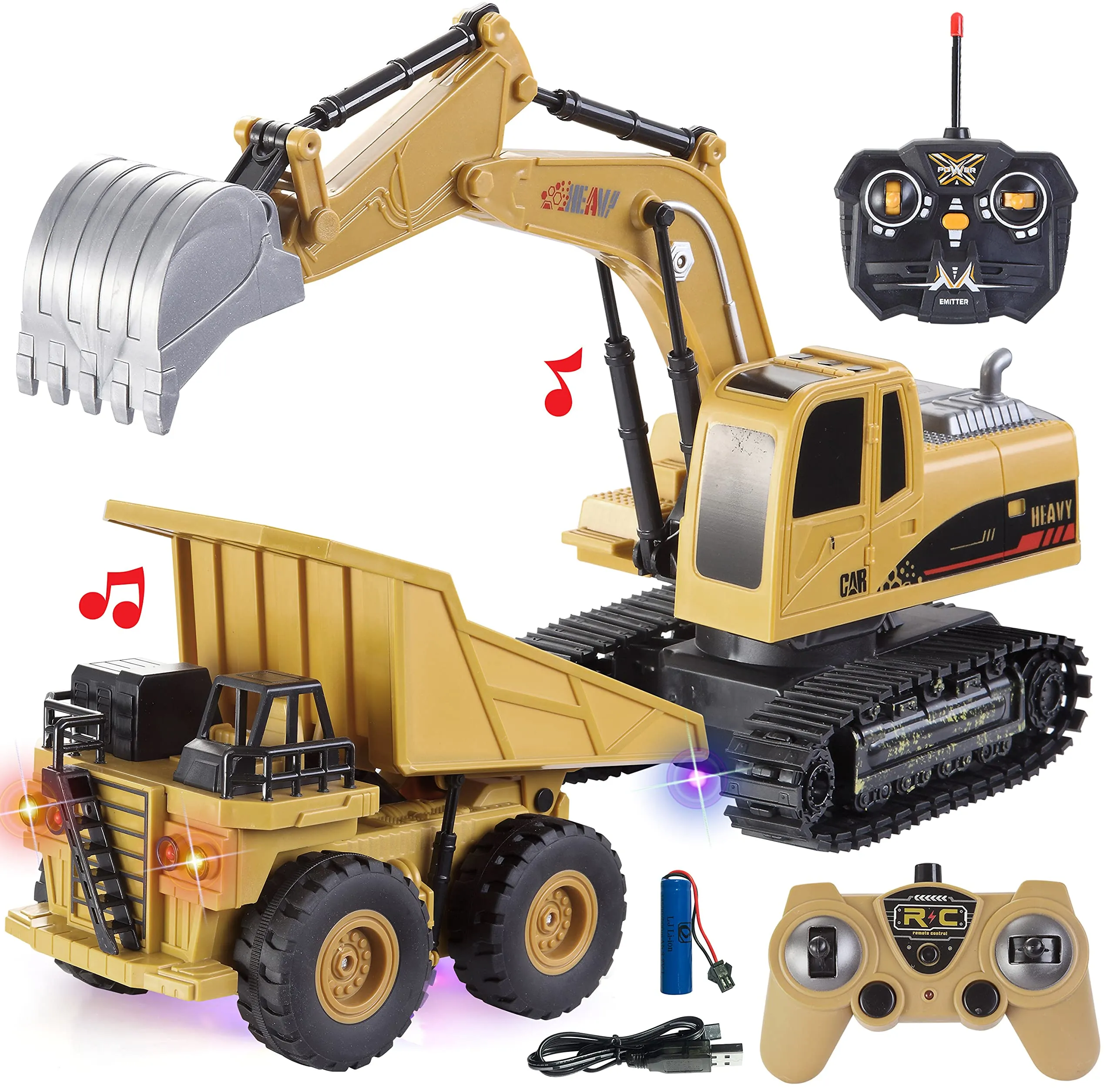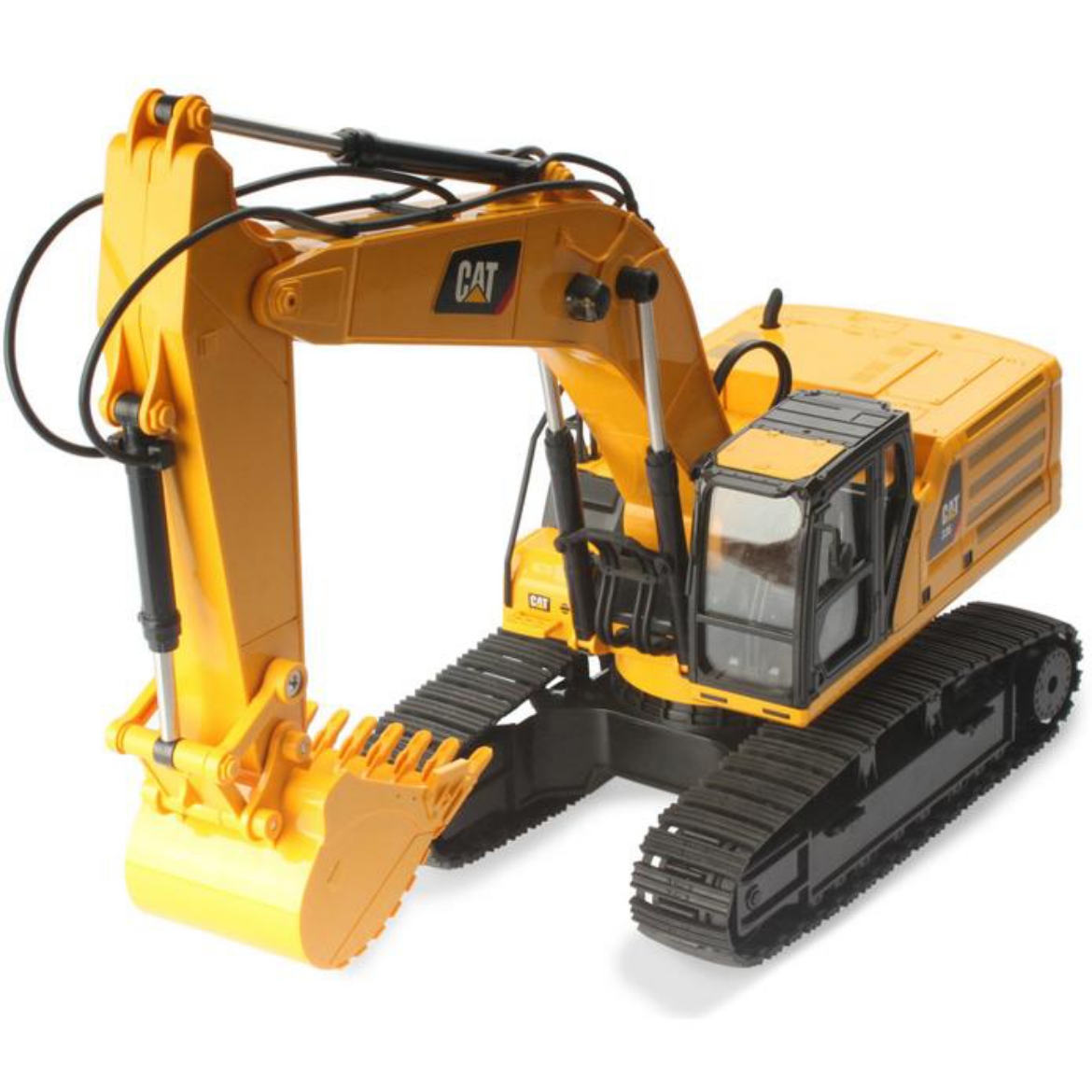Discover the Importance of Excavator in Modern Building And Construction Projects
Excavators are crucial devices in contemporary building and construction jobs. Their flexibility allows them to carry out a wide variety of tasks, from digging and grading to demolition and website preparation. Advanced functions, such as hydraulic accessories and general practitioners, enhance their capabilities and effectiveness on task websites. As the sector advances, the importance of excavators expands a lot more. Comprehending their duty can disclose understandings right into the future of building and construction practices. What exists in advance for these machines?
The Convenience of Excavators in Various Projects
Although excavators are commonly connected with large building jobs, their convenience enables them to be made use of in a wide variety of applications, from residential landscape design to energy upkeep. In city settings, excavators can navigate limited rooms to dig structures for homes or mount water drainage systems. Their capacity to do delicate tasks makes them suitable for landscape design tasks, where they can dig deep into for ponds or plant trees. Additionally, excavators play an important role in energy upkeep, effectively digging trenches for pipelines or cables without disrupting bordering areas. In farming applications, they help in land clearing and soil preparation. Their versatility enables them to be equipped with different accessories, enhancing their capability throughout different jobs. This diverse nature of excavators not just simplifies different building processes but likewise shows their important role in modern-day framework advancement and maintenance.
Trick Functions and Sorts Of Excavators
The conversation on vital functions and kinds of excavators highlights the essential characteristics that make these makers indispensable in building. Various excavator kinds, each developed for specific tasks, demonstrate their convenience and efficiency throughout different applications. rc excavator. Understanding these functions and categories is crucial for enhancing their usage in modern-day building jobs
Excavator Keys In Overview
Excavators play a critical duty in contemporary building and construction, providing flexibility and performance throughout numerous tasks. These hefty equipment devices come in numerous kinds, each customized for specific applications. One of the most common kinds consist of spider excavators, recognized for their security on irregular terrain, and wheeled excavators, which offer higher wheelchair on smooth surface areas. Miniature excavators are favored for small-scale projects and limited rooms, while long-reach excavators are created for deep excavating. Additionally, there are specific excavators, such as hydraulic excavators, which improve power and precision. Each kind includes special abilities, making them crucial for jobs varying from excavating and grading to demolition and product handling. Comprehending these variants allows building experts to select the best excavator for their project needs.
Trick Includes Explained
Comprehending the crucial features of excavators enhances their effective application in building tasks. Excavators are identified by their effective hydraulic systems, which supply the essential force for digging, training, and relocating materials. Their expressed arms permit a variety of movement, assisting in precise procedures in constrained rooms. In addition, the selection of accessories, such as buckets, grapples, and augers, expands their versatility to satisfy various job needs. The size and weight of excavators additionally contribute to their security and maneuverability on various terrains. Advancements in modern technology have led to the combination of General practitioner and automation, improving accuracy and effectiveness in excavation tasks. These features jointly position excavators as important tools in modern building.
Applications in Construction
Transforming building websites, excavators play a pivotal function throughout various applications, ranging from household building tasks to massive infrastructure advancements. These versatile makers are geared up for tasks such as digging foundations, trenching for energies, and site grading. Various kinds of excavators, consisting of crawler, wheeled, and mini excavators, offer details benefits tailored to the project demands. Crawler excavators master harsh terrains, while rolled excavators use flexibility on paved surfaces. Tiny excavators are perfect for constrained rooms, making them popular in urban settings. The efficiency and power of excavators significantly accelerate building and construction processes, ensuring timely project conclusion. Their flexibility additionally improves their relevance, enabling building teams to deal with a diverse array of challenges efficiently.
Enhancing Efficiency and Productivity on Work Sites
Optimizing efficiency and performance on task sites is a crucial objective in modern building and construction. Excavators play an essential function in accomplishing this objective by simplifying numerous tasks. Their capacity to do several functions-- such as lifting, digging, and grading-- lowers the requirement for extra tools, consequently conserving time and resources.Moreover, excavators improve operations by permitting for faster completion of tasks. With innovative functions like hydraulic accessories and GPS technology, they can perform accurate operations that lessen errors and revamp. This accuracy not only improves the high quality of work however likewise enhances material use, contributing to set you back savings.The adaptability of excavators allows them to adapt to different website conditions, guaranteeing that tasks progress efficiently no matter difficulties. By incorporating excavators into building and construction procedures, groups can greatly increase their general efficiency, resulting in prompt task completion and boosted success.
Safety And Security Benefits of Using Excavators
Excavators considerably enhance safety on building websites with enhanced driver visibility and lowered hand-operated labor risks. By offering operators with a clear view of their environments, excavators assist to avoid injuries and crashes. Furthermore, the machinery minimizes the demand for employees to participate in harmful manual tasks, further promoting a much safer workplace.
Improved Operator Exposure
Building and construction websites can be disorderly and filled with prospective risks, improved operator visibility plays a necessary duty in making sure security when utilizing excavators. Modern excavators are created with huge, unhampered home windows and strategically placed mirrors, allowing operators to keep a clear view of their surroundings (rc excavator). This enhanced presence is crucial for spotting pedestrians, various other equipment, and various challenges, significantly lowering the threat of accidents. Additionally, many excavators incorporate sophisticated technology, such as cameras and sensing units, to give drivers with added point of views, better improving awareness. The capacity to see more plainly not only help in effective operation however also cultivates a safer job setting, making it simpler for operators to navigate intricate building websites without compromising safety and security requirements
Minimized Guidebook Labor Risks
When hands-on labor their explanation is minimized through making use of excavators, numerous security benefits arise, significantly enhancing the wellness of building employees. Excavators minimize the physical stress related to hefty training and repeated jobs, efficiently decreasing the risk of musculoskeletal injuries. By automating procedures such as excavating, grading, and relocating materials, they enable employees to maintain a safer distance from prospective risks. In addition, excavators are geared up with sophisticated safety attributes, such as rollover defense systems and enhanced operator functional designs, which better secure employees on site. The result is a significant reduction in workplace crashes and injuries, resulting in raised productivity and morale among building groups. Eventually, the fostering of excavators adds to a safer and a lot more reliable building and construction atmosphere.
Excavators in Earthmoving and Site Preparation
In modern-day building, a significant portion of earthmoving and site preparation tasks relies upon the efficiency and convenience of excavators. These equipments are made to handle various dirt types and terrain, making them essential for rating, excavating, and trenching activities. Their hydraulic arms can be geared up with various add-ons, such as augers and containers, allowing drivers to personalize their technique based on certain job requirements.Excavators succeed at relocating big volumes of earth quickly and successfully, which increases the total building and construction timeline. They can navigate tight rooms and challenging websites where typical equipment may struggle, enhancing productivity. Additionally, the accuracy of excavators guarantees that site prep work abides by strict specifications, lessening the risk of mistakes that could bring about costly rework.
The Role of Excavators in Demolition Tasks
Excavators play a necessary duty in demolition tasks, as they have the read this article power and agility required to dismantle structures successfully. Geared up with numerous attachments such as hydraulic breakers, shears, and grapples, these equipments can adapt to various demolition requirements, whether for small structures or large industrial sites. Their adaptability allows drivers to take on intricate jobs while preserving safety and security and precision.In addition to their demolition abilities, excavators promote debris elimination, making sure that work websites stay risk-free and orderly. By other breaking down frameworks into workable pieces, they enable streamlined cleaning and recycling of materials, straightening with modern-day sustainability efforts.Moreover, excavators can access limited areas and browse irregular surface, making them vital in city demolition projects. Overall, their robust design and multifunctionality make excavators an important property in the demolition stage of building and construction, adding substantially to project timelines and effectiveness.


Future Patterns in Excavator Modern Technology and Use
As the building market advances, innovations in excavator innovation are poised to change their usage and effectiveness significantly. One significant fad is the assimilation of automation and artificial knowledge, enabling excavators to operate with very little human treatment. This change will certainly enhance accuracy in tasks such as grading and trenching, lowering human error and increasing productivity.Additionally, the rise of hybrid and electrical excavators is forming a more sustainable construction setting, reducing carbon discharges and gas costs. Boosted telematics systems are likewise arising, allowing real-time surveillance of maker efficiency and maintenance demands, which can cause better operational effectiveness and longer equipment lifespan.Moreover, innovations in accessory modern technology are expanding the flexibility of excavators, enabling them to carry out a more comprehensive variety of jobs. The combination of these fads demonstrates a future where excavators are smarter, greener, and extra versatile, eventually improving construction job characteristics.
Frequently Asked Inquiries
Just How Do Excavators Compare to Other Building And Construction Machinery?
Excavators, identified by their convenience and power, stand out in digging and earthmoving compared to other equipment. Their ability to carry out different tasks, consisting of training and demolition, makes them important in construction jobs, boosting total effectiveness.

What Is the Ordinary Life-span of an Excavator?
The typical life-span of an excavator typically ranges from 7,000 to 10,000 operating hours, relying on maintenance, use conditions, and design. Proper treatment can expand this life-span, making certain peak performance throughout its operational years.
Exactly How Are Excavators Preserved for Optimum Performance?
Excavators require normal upkeep for peak performance, including regular examinations, liquid checks, filter replacements, and prompt repair services. Implementing a preventative maintenance schedule helps extend their lifespan and guarantees effective procedure in various construction environments.
What Are the Costs Associated With Acquiring an excavator vs. renting out?
The expenses connected with renting out versus purchasing an excavator differ substantially. Renting out deals lower upfront expenses but can gather over time, while acquiring calls for a substantial first financial investment, yet provides long-lasting savings and possession ownership benefits.
What Training Is Needed to Run an Excavator?
Operating an excavator needs specialized training, generally consisting of safety and security procedures, maker operation methods, and environmental understanding. Certification programs usually mandate functional experience, enabling operators to handle different tasks effectively while making certain conformity with market guidelines. The most typical types include crawler excavators, recognized for their stability on irregular terrain, and rolled excavators, which provide higher movement on paved surfaces. Mini excavators are favored for limited spaces and small projects, while long-reach excavators are created for deep digging. Additionally, there are specialized excavators, such as hydraulic excavators, which enhance power and accuracy. Various kinds of excavators, consisting of crawler, rolled, and mini excavators, supply certain advantages tailored to the job needs. Crawler excavators stand out in harsh terrains, while wheeled excavators offer mobility on paved surface areas.